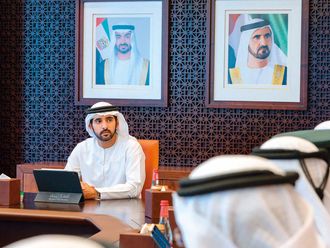Dubai: Major updates to gas cylinder regulations in the UAE will ensure that cylinders are manufactured, filled, stored and transported in a safe environment, Gulf News can reveal.
The Emirates Authority for Standardisation and Metrology (Esma) has amended the existing regulations to further improve the safety standards of handling and distribution of LPG cylinders for domestic use.
“We want to ensure the consumers get best value for their money, while at the same time implementing best safety standards for handling LPG cylinders,” said Abdullah Al Muaini, Acting Director-General of Esma.
The updated regulations focus on storage and transportation of the cylinders, making custom-designed vehicles for transporting the cylinders mandatory.
The speed limit of the vehicles transporting LPG cylinders has also been limited to 80km/h, while the vehicle transporting the LPG should be clearly marked with a specific paint.
Limitations have also been placed on the capacity of the vehicles transporting the cylinders.
“Every step in transporting and storage of LPG is being taken care of. We want to put in place a zero-risk atmosphere and that is why we are giving so much attention to details,” said Al Muaini.
Among the new requirements are temperature-controlled storage facilities for LPG, qualified handlers of cylinders as well as new labelling that will clearly show all the details of the products.
The details to be mentioned on the cylinder are the name of the manufacturer, name of the importer in case the cylinder is imported, quality mark of Esma, maximum operating pressure, serial number of the cylinder, type of gas used, empty weight, capacity and year of manufacture.
According to the regulations, a cylinder has a life of five years, which can be extended for another five years only after an approved re-test is done. Date of the pressure test should be clearly mentioned on the cylinders.
Esma has also issued special valves for the cylinders, while standards have also been issued on the quality of material used and the process of manufacturing the cylinders.
“Consumers shouldn’t purchase the cylinders without the Esma quality mark or if the seal is broken. Also, the weight of the cylinders, which is clearly mentioned on the cylinder, should be checked,” added Al Muaini.
The new regulations will be in place from May and the manufacturers and distributors will have until the end of June to implement the new standards.












